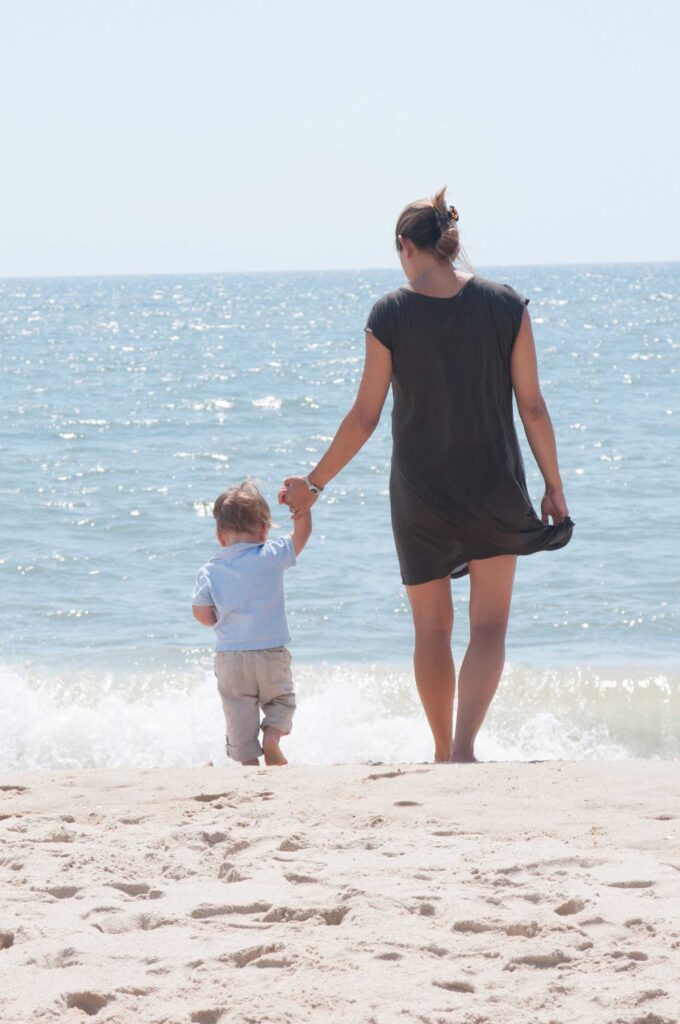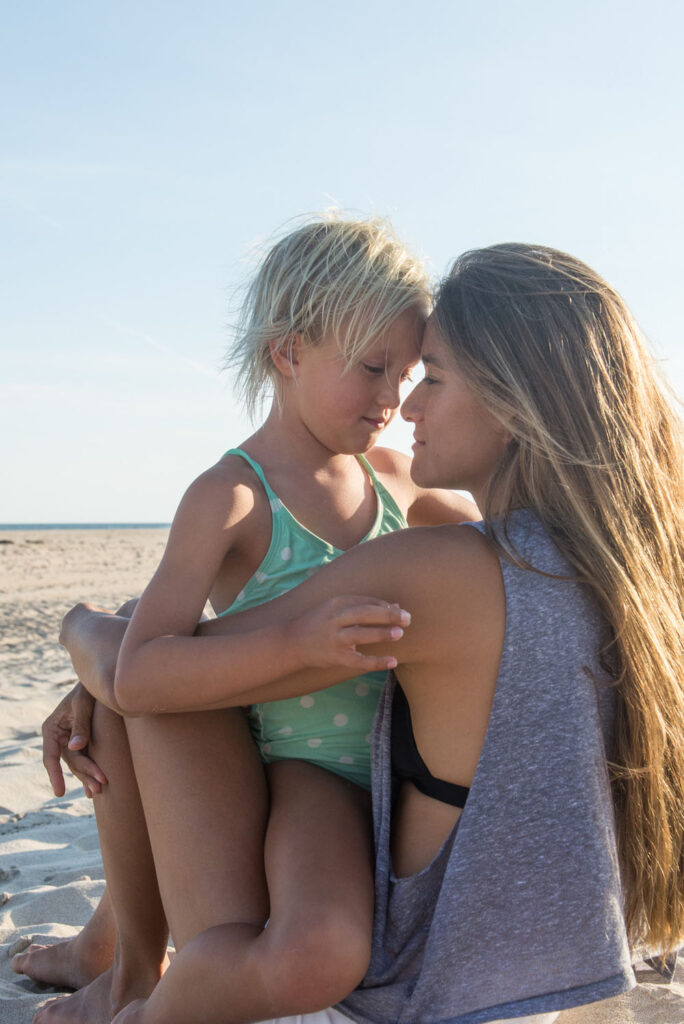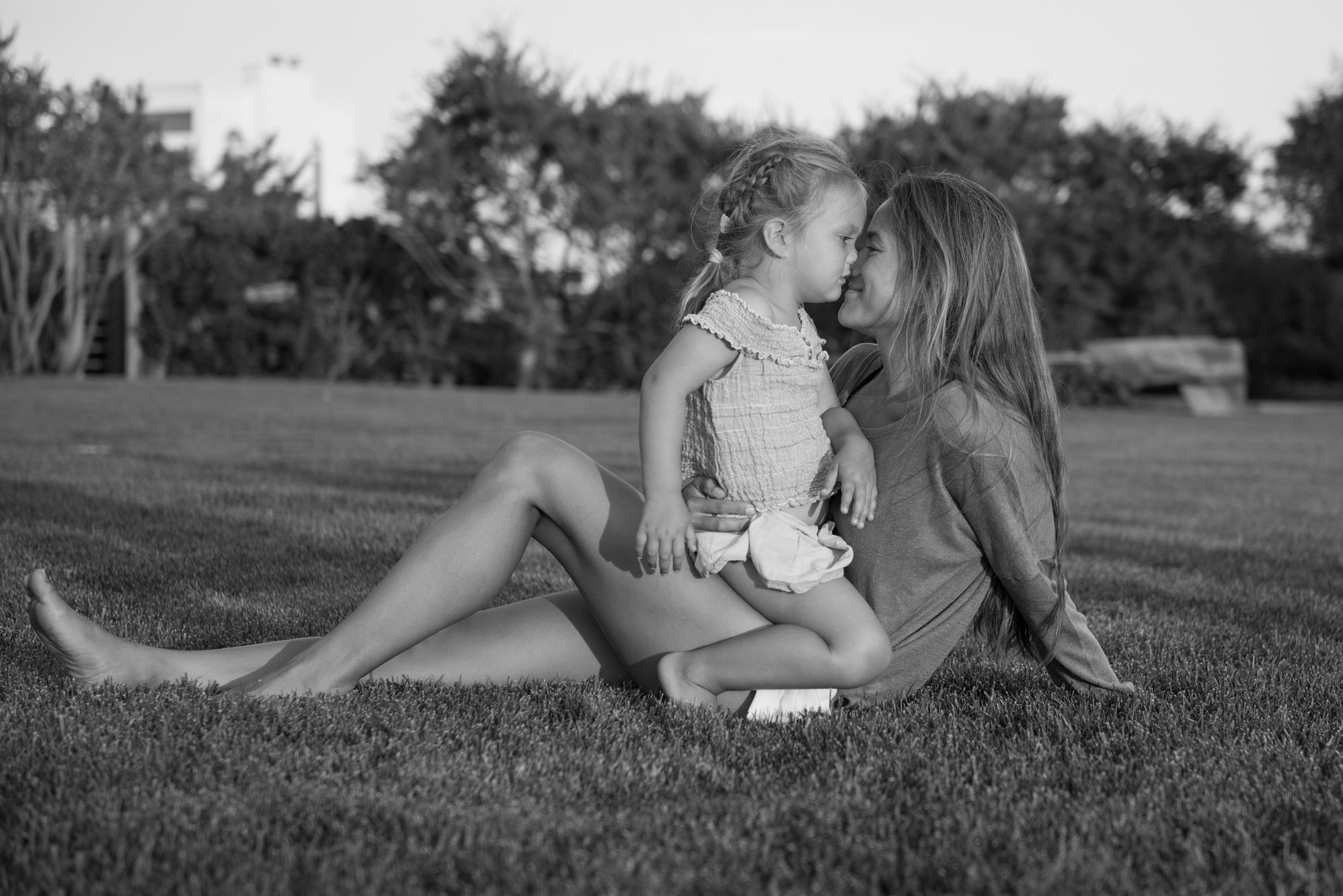I’m a recovering perfectionist and here’s how motherhood helped me let go.
I’ll never forget the time I called Tovah Klein, a leading developmental psychologist, desperate and at my wits end with my outrageously non-compliant child. Among my son’s transgressions was his refusal to participate in the “Mommy and Me” music class I had signed us up for. All of the other kids were participating happily–dancing with the scarves, shaking the maracas, and beating the drums–while he sat firmly in my lap, refusing to budge. No amount of prompting or cajoling could get him to do what was expected of him.
“Is there something wrong with my child?” I asked Tovah. But what I really wanted to ask her—If I’m being completely honest—was, “Is there something wrong with me as a mother?”
Did his unwillingness to play nicely with the other children reflect a deeper failure of my motherhood? Was his defiance a sign of a much bigger problem looming ahead of us?
Tovah’s response—bless her heart—has stayed with me all these years: “Oh, he sounds wonderful! He really knows what he wants and needs.”
What he wanted was to be with me, she explained. He didn’t have any interest in the other kids if he could be close to me. He knew exactly where he wanted to be, and no amount of scarves or bells or maracas was going to trump the connection he felt by just simply sitting in my lap.
She followed this observation up with, “No, you don’t have to worry about that one. It’s the perfect ones we worry about.” I felt these words deep in my bones the moment I first heard them.


Perfect is precisely how I identify when I think of my childhood. Perfect is how my mother, to this day, describes me as a child. My entire childhood was spent studiously avoiding failure and solving for compliance. I strove relentlessly to perfectly meet expectations both for achievement and behavior, so when my child simply wouldn’t do what was expected of him, I felt like I was losing my mind.
But all of a sudden, everything had been turned on its head. Why would a child striving for perfection be alarming to a renowned psychologist like Tovah? What did this mean for the inner perfectionist that I still carried inside?
What I didn’t realize when I had that conversation with Tovah was that the journey of motherhood would unravel everything I thought I knew about how to navigate the world.
Perfectionism had carried me well through childhood; it offered plenty of positive reinforcement in the form of praise and acceptance. The utter chaos of motherhood, however, blasted apart any notion of perfectionism being an ideal, let alone feasible way to operate.
How could we even contemplate the idea of perfection in motherhood when mornings were often wiping one child’s butt on the toilet while simultaneously breastfeeding a second and trying to get a third naked child from reaching in to touch the toilet water (true story)?
The moment I had multiple toddlers, chaos reigned, and perfection was off the table. And yet, my perfectionist training, not to mention my overwhelming mom guilt, kept rearing its head amidst the chaos.
What is mom guilt you might ask? Here’s how the Cleveland Clinic defines it:
“Mom guilt is a name given to the feelings of guilt and shame some people feel when they don’t live up to their own or others’ expectations in their role as a parent. It’s like an internal dialogue that tells you you’re failing as a caregiver.”

Do you identify as a perfectionist? Can you relate to these feelings?
Here are a few strategies that can help you find some relief:
The problem → You’re hanging on tightly to your perfectionism.
Rather than accepting that there were too many variables to manage, I started creating systems, checklists, and fail-safes to ensure that the chaos remained corralled. I gathered all the practical advice on managing daily tasks, organization, and time management as a parent. Somehow the order of a spreadsheet and the labeling of toy bins made it all feel just a little more under control. Does this sound familiar? Is the precision of your calendar and your steel trap mind that is committed to remembering everything for everyone make you feel just a little less like it could all fly up in a tornado at any moment? Are you tirelessly devoted to making sure that your children are in the right school and the right class, with the right teacher, doing the right activities? Could it be that you’re expending all that energy to make it feel a little more possible to smooth the path to happiness for them?
The fix → Accept that you’ve never had and will never have full control.
What perfectionists are ultimately the most afraid of is losing control. We take all these extraordinary measures to give ourselves the illusion of security because the truth is too difficult to admit. We actually will never have full control over anything, least of all what happens to our children. Perfectionist moms are desperate to control so many things, but at the very top of the long list is our kids’ well-being and happiness. The reality that we are powerless to prevent them from getting hurt–emotionally or physically–strikes so much fear into our hearts that we delude ourselves into thinking that we can dictate their fate by making sure every moment of their childhood is perfect. We crash and burn when our efforts strip us of our energy–and guess what? Bad stuff happens anyway! Then the mom guilt sets in–not just because we feel terrible for not succeeding, but because we fear irreparable damage has been done. Talk about an exercise in futility.
The problem → Just like people pleasers, perfectionists want to avoid criticism and judgment at all costs.
We compare ourselves to others and beat ourselves up for the slightest misstep. We don’t ever ask for help or share that we’re struggling with anyone, especially not our children. The model we’ve set for them is that mistakes aren’t welcome and accidents are unacceptable. There’s no room for showing empathy, compassion, or vulnerability because no one feels they’re allowed to mess up.
The fix → We cannot show up with empathy for others without first applying empathy to ourselves.
Releasing the need to be a perfect parent and accepting that imperfections are a part of the parenting journey will really help lighten the load. Begin a practice of noticing whenever you are being hard on yourself and remind yourself that you’re doing the best you can. Build a tolerance for messiness and congratulate yourself every time you resist the temptation to control and fix a situation that isn’t exactly as you had planned.
Other Tips for Navigating Perfectionism and Mom Guilt:
- Realize that you’re not alone in this! So many of us are struggling to overcome feelings of guilt associated with our parenting choices, being present with our children, and work-life balance.
- Stop comparing your reality to other people’s polished and curated lives on social media, especially when it comes to motherhood. This is a surefire way to make you feel awful.
- Get real with a friend. Share your struggles with a trusted mom friend; we all need support and to not feel alone!
- Look for instances when you feel like you need to get something exactly right and ask yourself, “What am I afraid will happen if I don’t get this perfect? Is it true?”
- Taking care of yourself is essential to showing up as a good mom. It can be hard to prioritize your self-care without feeling guilty, but it is non-negotiable! Your mental, physical, and emotional health depends on it.
- Humor heals- When things feel insane, I look up humorous motherhood memes on Instagram about how ridiculous it can feel to be a mom sometimes. Relatable quotes and memes can help lighten the mood, and I love to share them on my Instagram page @vanessacornell.
It’s taken me a long time to unlearn my tendency to solve for perfection, but I have discovered how much freedom and space for joy it has created in my life. I’m committed to being messier and messier every year.
Go easy on yourself. You’re doing the best you can for your kids. Now it’s time to also do the best for yourself!
Love,
Vanessa
get it here
A weekly voicenote from me to you. Sometimes deep, sometimes ridiculous, always human. Think of it like the kind of voicenote I’d leave my best friend—the messy, unfiltered version of me, saying the things we don’t usually say out loud. Now I’m sending them to you.
A weekly voicenote from me to you.
Sometimes deep, sometimes ridiculous, always human. Think of it like the kind of voicenote I’d leave my best friend—the messy, unfiltered version of me, saying the things we don’t usually say out loud. Now I’m sending them to you.
Voicenotes From A Friend
REAL TALK FOR REAL WOMEN
